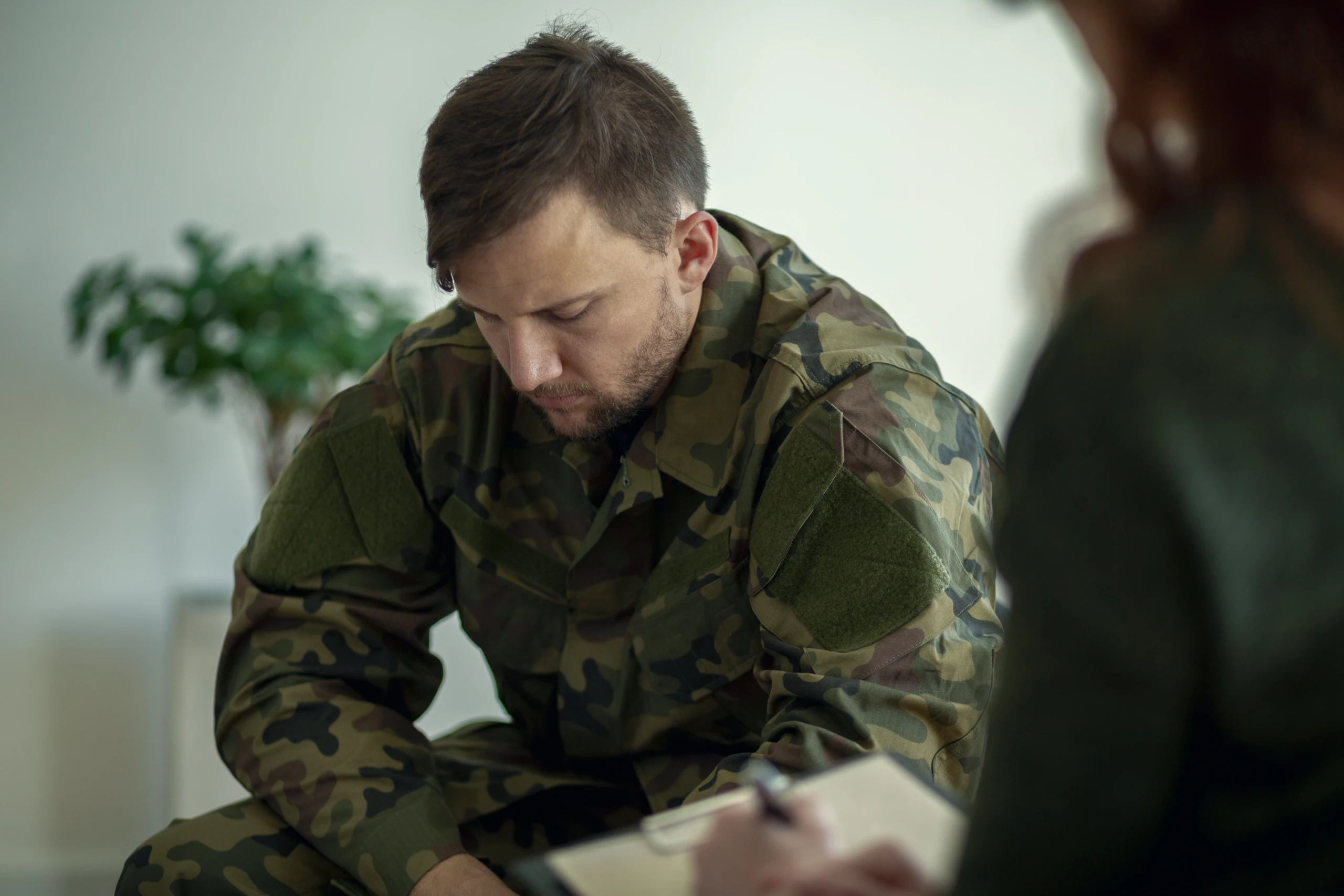Countless men and women in the armed forces are regularly faced with stressors, extreme conditions and traumatic events that most of us can’t even imagine. These experiences can take a serious toll on both the mental and physical health of a person, as well as their overall well-being. The intense aftermath of these traumas can affect military members in a variety of ways, many of which result in negatively impacting multiple areas of their lives.
One of the ways military trauma can impact a veteran is through harming their brain health. In this article, we’re going to look at what trauma does to the brain, specifically within the context of military trauma.
Trauma and the brain
Many people are familiar with the toll that trauma can take on our mental and emotional health, but not everyone thinks about the impact trauma can have on the function of the brain. Trauma can alter the neurological structure of your brain, resulting in the shutting down of certain systems and producing unhealthy connections of other neural networks.
Extreme stress and a high level of potential or active danger can lead to dramatic changes in brain chemistry. Given that these scenarios are often commonplace while serving in the military, veterans are at an increased risk of trauma and the resulting compromised brain function.
Military trauma and the brain
Trauma can affect various areas and functions of the brain and can result in the development of mental health conditions or behaviors that pose a danger to themselves or others. For example, the amygdala in the brain is responsible for the regulation of emotions and the ability to detect threats. Military trauma can result in a hyperactive amygdala which can lead to heightened or “unfiltered” emotional responses, as well as paranoia and insomnia.
Another example is the brain’s ability to change and adapt, known as neuroplasticity. Military trauma can lead to the development of neural pathways that reinforce a person’s negative thought patterns and beliefs, making it all the more difficult to heal from the trauma.
When it comes to what trauma does to the brain, it’s a complex issue, one that is even more fragile when placed within the context of military trauma. Finding a mental health program that understands the unique challenges and difficulties veterans experience in their civilian lives is essential to achieving a sustainable recovery.
Find a veteran program near you
Here at Real Recovery, veterans attend group therapy with fellow veterans as well as adult men who have not served in the military. Providing a mixed demographic community provides veterans with the dual opportunity of both healing from their trauma as well as refamiliarizing themselves with navigating civilian life.
We are proud to be included in the Veterans Affairs Community Care Network (VA-CCN) and be able to provide veterans with timely and convenient access to behavioral healthcare. Administering high-quality, prompt treatment services to the men and women who have served our country is our priority.
If you or someone you know is struggling with unresolved military trauma, a substance use disorder or addiction, or both, reach out to our team here at Real Recovery.
Start your recovery today
Our mission revolves around helping you complete recovery and maintain sobriety. We are a premier addiction rehabilitation and mental health treatment center settled in the foothills of North Carolina.
Each treatment plan is tailored specifically to meet each individual’s needs, revolving around the pillars of deep intervention, individual change and continued support. In other words, you won’t just learn how to overcome your current struggles — we’re here to teach you how to face life’s challenges as they arise so you can maintain your sobriety.
We know that taking the first step toward treatment can feel intimidating and overwhelming, but we’re here to help you in whatever way we can. Whether you’re ready to enroll in one of our programs or are seeking guidance around what you need at this point in your journey, we’re excited to speak with you.
Send us a message or give us a call today to speak with an advisor.





